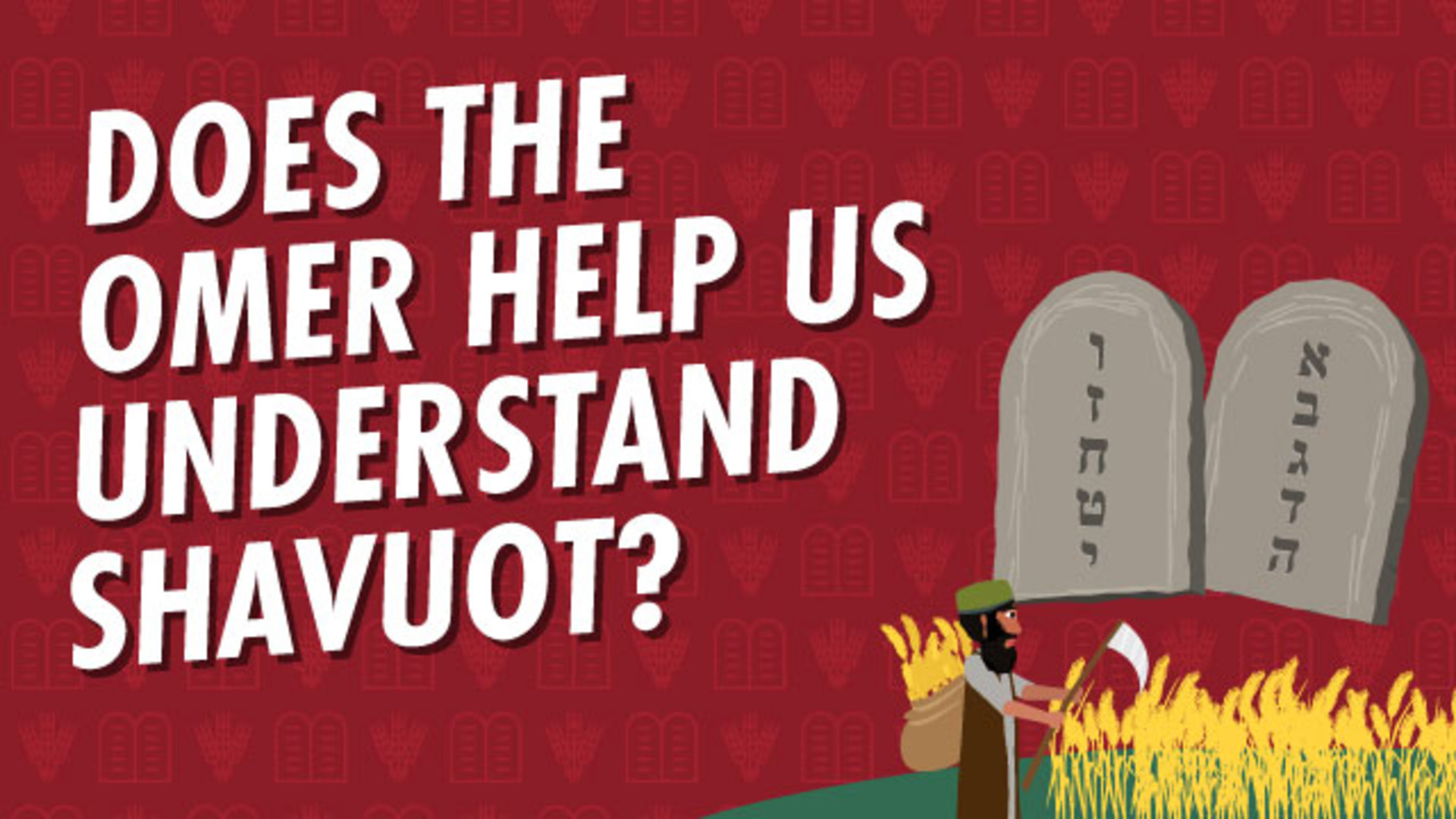
It seems it's referenced in that context. I suggested that if you look throughout the Hebrew Bible, the word Omer appears in only one other context in the Hebrew Bible.

I suggested that is it possible that the ceremony of counting the Omer is almost like a mini holiday in the sense that it too commemorates a historical event, an event that's between the exodus from Egypt and the giving of the Hebrew Bible at Sinai. Then you've got the ceremony of counting the Omer. Shavuot commemorates being given the Hebrew Bible at Sinai 49 days later. Passover commemorates being taken out of Egypt. We know that Passover commemorates a historical event and we know that Shavuot commemorates a historical event. The idea is that if you just think about where this law appears, it appears in the portion of Holidays, in between Passover and Shavuot.

Pretty much last week, I suggested a theory to you. The whole thing is very mysterious, what the meaning of the count is and what the meaning of the Omer is. It's this sort of little competition that we all have for 49 days, where you keep on counting this Omer without missing a day. We all know that the counting of the Omer is a big deal. "Usfartem lachem mimachrat haShabbat," then you have to start counting from that day for seven complete weeks, "sheva shabatot temimot tihyenah."Īt the very end of that, we make this Holiday called Shavuot. "Chukat olam l'doroteichem bechol moshvoteichem," that's the law wherever you live in Israel. "V'lechem v'kali v'karmel lo tochlu ad etzem hayom hazeh," until that day that you bring the omer offering, until you brought that offering, you should eat no bread or parched grain or fresh ears of grain. Here's that language over here in Verse 14. The question is how exactly does that work. The omer offering has this function of making new grain permitted, which means that the omer offering allows you to eat from the new grain, new props of the land. You have to wave the omer offering up in the air and you do it the day after the first day of Passover, known as "mimachrat haShabbat." That's these laws of offerings and basically you bring - here there's this omer offering. The whole story of Omer is indeed a story that doesn't seem to belong in the portion of Holidays.

The Holidays, we have Passover and then we have Shavuot, but in the middle, we hear about the Omer. It appears in Leviticus, in the middle of the portion of Holidays. So I suggested that it's a little bit strange where the Omer appears. Rabbi Fohrman: The question is what exactly is the meaning of this counting of the Omer that we do.


 0 kommentar(er)
0 kommentar(er)
